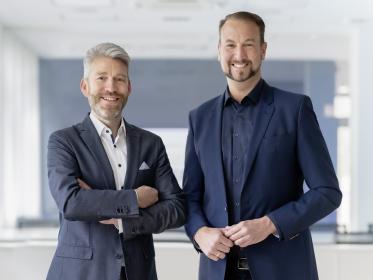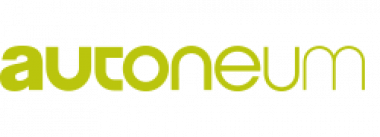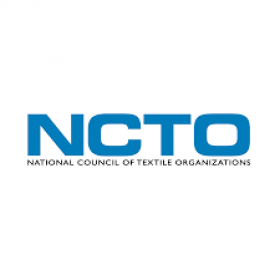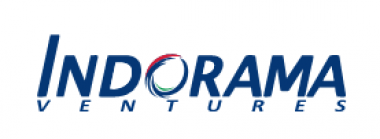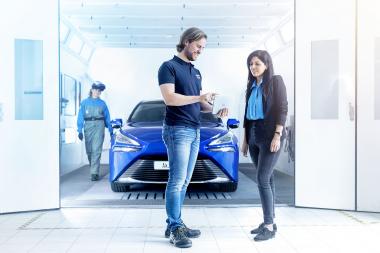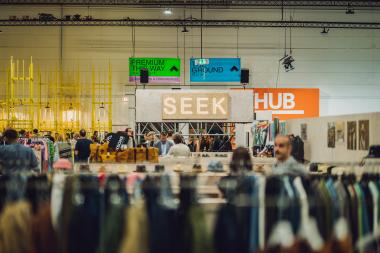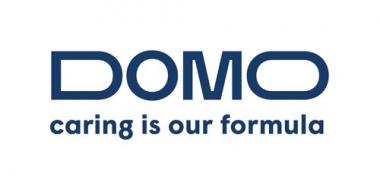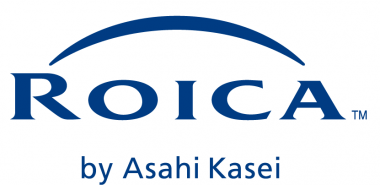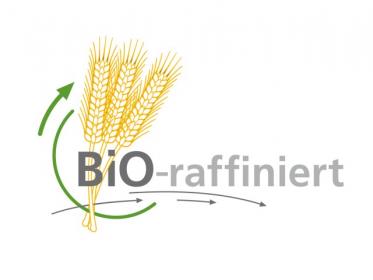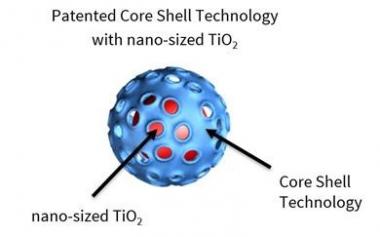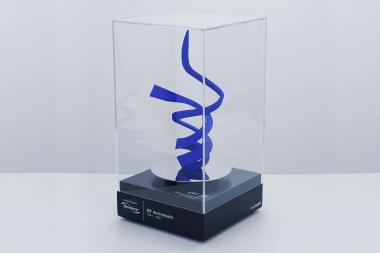Fraunhofer UMSICHT: New institute directors
Prof. Manfred Renner and Prof. Christian Doetsch will take joint leadership of the Fraunhofer Institute for Environmental, Safety and Energy Technology UMSICHT from August 2022. As renowned scientists, they have most recently shaped the direction of the institute as heads of the Products division and Energy division respectively, and will now follow in the footsteps of Prof. Eckhard Weidner, who has entered retirement.
This is the first time in its history that Fraunhofer UMSICHT is led by two directors. Both institute directors began their professional careers at the institute and from August they will have a joint hand in its future.
Prof. Manfred Renner holds a doctorate in mechanical engineering, specializing in process engineering and business development. Since 2006, he has held various roles at Fraunhofer UMSICHT, most recently heading up the Products division and overseeing its 126 employees and its budget of 14.8 million euros. He has set international standards through his award-winning research into a free of water tanning leather tanning process that uses compressed carbon dioxide. With the development of innovative aerogel-based insulation materials for building facades, he has made a significant contribution to environmentally friendly, circular applications in the construction industry and initiated a number of industrial projects. One of the notable technological breakthroughs made by his team was the development of a new type of fire-resistant glass, which can withstand even the most extreme heat. This won his development team the Joseph von Fraunhofer Prize in October 2020.
Alongside becoming institute director, Prof. Renner will also take over the leadership of the Fraunhofer Cluster of Excellence Circular Plastics Economy CCPE in August 2022. In this role, he will represent the Fraunhofer-Gesellschaft on a national and international level with regard to the transformation of industry and society to a circular economy. In addition, he will start his professorship in Responsible Process Engineering at the Faculty of Mechanical Engineering of the Ruhr-Universität Bochum. Over the course of his professorship, he will shape the systemic development of the circular economy at a corporate, regional and European level.
Prof. Christian Doetsch has worked in energy research for more than 25 years, spending most of this time at Fraunhofer UMSICHT. As head of the Energy division, he managed a team of around 145 employees and was responsible for a budget of approximately 10.4 million euros. His technological focal points are energy storage, Power-to-X technologies including hydrogen electrolysis and chemical conversion, catalysts, and energy system modeling and optimization. His overarching aim is the integration of renewable energies into a cross-sectoral, resilient energy system.
In 2015, Doetsch co-founded the award-winning start-up Volterion GmbH & Co. KG, which develops redox flow batteries. He attained high visibility on a global scale by redesigning stacks, one of the main components of redox flow batteries, an achievement for which he, his team and Volterion representatives were awarded the Joseph von Fraunhofer Prize in May 2021. The energy expert also acts as deputy spokesperson for the Fraunhofer Energy Alliance and task manager for the energy storage group at the International Energy Agency (IEA). He also co-founded the “Open District Hub e. V.,” an association that promotes the energy transition in the sector by means of energy systems integration.
Since January 2020, he has been Professor of Cross Energy Systems at the Faculty of Mechanical Engineering of the Ruhr-Universität Bochum. In this role, he conducts research into ecological evaluation and resilience of cross-sectoral energy systems.
Fraunhofer UMSICHT


